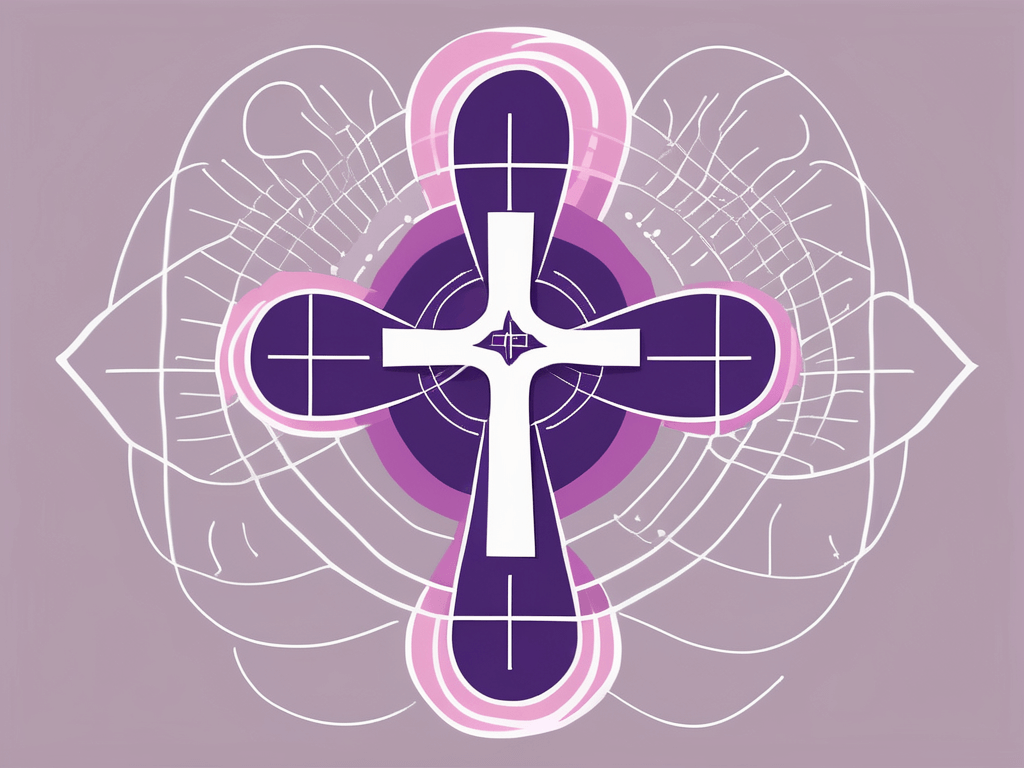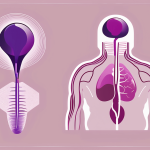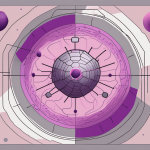Dealing with stage 2 prostate cancer brings its own set of challenges and decisions, particularly when considering hormone therapy as a treatment option. This comprehensive guide dives into the intricacies of prostate cancer at stage 2, highlighting how the disease is confined yet potentially more aggressive. It elucidates the pivotal role hormones play in cancer’s growth, setting the stage for hormone therapy’s importance in treatment. By providing an in-depth look at what is hormone therapy, its benefits versus risks, and the treatment process, this guide aims to arm patients with the knowledge needed to make informed decisions. Understanding hormone therapy offers hope for those navigating the complexities of prostate cancer treatment, emphasizing informed decision-making and proactive health management.
If you or a loved one has been diagnosed with prostate cancer stage 2, it’s important to understand the treatment options available. One such option is hormone therapy, which can play a critical role in managing and treating this stage of prostate cancer. In this comprehensive guide, we will delve into the basics of prostate cancer, what stage 2 means, the role of hormones in prostate cancer, and provide an overview of hormone therapy. We will also discuss when hormone therapy is recommended for stage 2 prostate cancer, its potential benefits and risks, and what to expect during treatment. By the end of this guide, you will have a better understanding of hormone therapy and its importance in combating prostate cancer.
Understanding Prostate Cancer Stage 2
Before diving into the specifics of hormone therapy, it is essential to have a solid understanding of prostate cancer stage 2. Prostate cancer is a type of cancer that affects the prostate gland, a small gland located below the bladder and in front of the rectum. The prostate gland plays a crucial role in the male reproductive system, producing fluid that nourishes and transports sperm.
Stage 2 prostate cancer indicates that the cancer is still confined within the prostate gland and has not spread to nearby lymph nodes or other organs. This stage is further divided into two subcategories: stage 2A and stage 2B. In stage 2A, the cancer is confined to one side of the prostate, while in stage 2B, it may have spread to both sides of the prostate. It is important to note that stage 2 prostate cancer is still considered localized and has not yet spread to other parts of the body.
The Basics of Prostate Cancer
Prostate cancer develops when the cells in the prostate gland begin to grow uncontrollably. While the exact cause of prostate cancer is unknown, researchers have identified certain risk factors that can increase the likelihood of developing the disease. Age is a significant risk factor, with prostate cancer being more common in older men. Family history also plays a role, as men with close relatives who have had prostate cancer are more likely to develop it themselves. Additionally, race can influence the risk, with African American men having a higher incidence of prostate cancer compared to men of other races.
Early symptoms of prostate cancer may include difficulty urinating, blood in the urine or semen, and pain in the lower back or pelvis. However, it is important to note that these symptoms can also be caused by other conditions, and experiencing them does not necessarily mean that one has prostate cancer. Regular screenings and diagnostic tests are crucial for an accurate diagnosis.
Exploring Stage 2 Prostate Cancer
Stage 2 prostate cancer is a critical point in the disease progression. At this stage, the cancer is still confined within the prostate gland, allowing for more treatment options and a higher chance of successful outcomes. However, the decision-making process can be complex, as the treatment approach will depend on various factors, including the patient’s age, overall health, and personal preferences.
For stage 2A prostate cancer, treatment options may include surgery to remove the prostate gland, known as a radical prostatectomy, or radiation therapy. These treatments aim to remove or destroy the cancer cells within the prostate gland while preserving urinary and sexual function as much as possible. Additionally, active surveillance may be an option for some patients, where regular monitoring is done to ensure that the cancer does not progress.
In stage 2B prostate cancer, where the cancer may have spread to both sides of the prostate, treatment options may be similar to stage 2A. However, depending on the extent of the spread, additional treatments such as hormone therapy or chemotherapy may be recommended to target any remaining cancer cells and prevent further progression.
It is important for individuals diagnosed with stage 2 prostate cancer to consult with a multidisciplinary team of healthcare professionals, including urologists, radiation oncologists, and medical oncologists. Together, they can assess the specific characteristics of the cancer and tailor a treatment plan that best suits the patient’s needs and goals.
The Role of Hormones in Prostate Cancer
Hormones, particularly testosterone, play a pivotal role in the growth and development of prostate cancer. Testosterone is a male sex hormone responsible for the development of male sexual characteristics and the maintenance of bone and muscle mass. However, in the context of prostate cancer, testosterone can fuel the growth of cancer cells.
Hormonal Influence on Prostate Cancer Growth
Prostate cancer cells often rely on testosterone to grow and multiply. Hormone therapy works by either reducing the level of testosterone in the body or by blocking its effects on cancer cells. By doing so, hormone therapy aims to slow down or stop the growth of prostate cancer and decrease the size of tumors.
The Importance of Testosterone
While reducing the level of testosterone may sound counterintuitive, it is important to remember that hormone therapy is specifically targeted at prostate cancer cells. Lowering testosterone levels does not eliminate the hormone entirely, but rather decreases its availability to cancer cells. By depriving these cells of the fuel they need to grow, hormone therapy effectively hinders the progression of prostate cancer.
An Overview of Hormone Therapy
Hormone therapy, also known as androgen deprivation therapy (ADT), is a systemic treatment used in the management of prostate cancer. It can be used as the primary treatment for stage 2 prostate cancer or in conjunction with other treatments such as radiation therapy. The goal of hormone therapy is to slow down or halt the growth of cancer cells, relieve symptoms, and prolong survival.
The Purpose of Hormone Therapy
The primary purpose of hormone therapy is to control the growth of prostate cancer by either reducing the production of testosterone or blocking its effects on cancer cells. It is particularly effective in treating hormone-sensitive prostate cancer, a subtype of prostate cancer that relies heavily on testosterone for growth.
Different Types of Hormone Therapy
There are several types of hormone therapy available for the treatment of prostate cancer. The most common approach involves the use of medications called luteinizing hormone-releasing hormone (LHRH) agonists or antagonists. These medications work by inhibiting the production of testosterone in the testicles.
Another option is anti-androgen drugs, which block the effects of androgens (male sex hormones) on prostate cancer cells. Anti-androgens can be used in combination with LHRH agonists or as monotherapy.
In some cases, surgical removal of the testicles, called orchiectomy, may be performed to reduce testosterone production. This is a permanent treatment option and is typically reserved for older patients or those who prefer a more definitive approach.
Hormone Therapy for Stage 2 Prostate Cancer
Now that we understand the basics of hormone therapy, let’s explore its application in the treatment of stage 2 prostate cancer.
When is Hormone Therapy Recommended?
Hormone therapy is commonly recommended for patients with stage 2 prostate cancer who are at high risk of disease progression. This includes individuals with a higher Gleason score (a measure of how aggressive the cancer cells are) or a higher prostate-specific antigen (PSA) level.
Your healthcare provider will consider various factors when determining if hormone therapy is appropriate for you, including the stage and aggressiveness of your cancer, your overall health, and your treatment goals.
Potential Benefits and Risks
Hormone therapy can offer several benefits for individuals with stage 2 prostate cancer. It can slow down or halt the growth of cancer cells, shrink tumors, and alleviate symptoms such as pain and urinary problems. Additionally, hormone therapy can significantly extend survival for some patients.
However, hormone therapy also carries certain risks and potential side effects. These may include hot flashes, fatigue, sexual dysfunction, loss of muscle mass, and osteoporosis. Your healthcare provider will discuss the potential benefits and risks of hormone therapy with you, taking into account your specific circumstances.
The Process of Hormone Therapy
Now that you have a better understanding of hormone therapy for stage 2 prostate cancer, let’s delve into the process and what you can expect during treatment.
Preparing for Hormone Therapy
Prior to initiating hormone therapy, your healthcare provider will perform a thorough evaluation to ensure that you are a suitable candidate. This may involve blood tests to measure your testosterone and PSA levels, imaging studies to assess the extent of your cancer, and discussions about your treatment goals and expectations.
Additionally, it’s important to discuss any existing medical conditions or medications you are taking, as they may impact the effectiveness or safety of hormone therapy.
What to Expect During Treatment
Hormone therapy can be administered in different forms, including injections, oral medications, or implantable pellets. The duration of treatment will depend on various factors, including the stage and aggressiveness of your cancer, your response to therapy, and your treatment goals.
Your healthcare provider will closely monitor your condition throughout the course of hormone therapy, regularly checking your testosterone and PSA levels and assessing any potential side effects. It is important to attend all follow-up appointments and communicate any concerns or changes in symptoms to your healthcare team.
Remember, each person’s experience with hormone therapy may be unique. It is essential to have open and honest communication with your healthcare provider and seek support from loved ones and support groups throughout your journey.
In conclusion, hormone therapy is a vital treatment option for individuals with prostate cancer stage 2. By understanding the basics of prostate cancer, the role of hormones in its progression, and the process of hormone therapy, you can make informed decisions about your treatment plan. While hormone therapy may come with potential side effects, its potential benefits in slowing down or halting the growth of cancer cells make it a vital tool in the fight against prostate cancer. With the right support and guidance, you can navigate your prostate cancer journey with optimism and hope.






